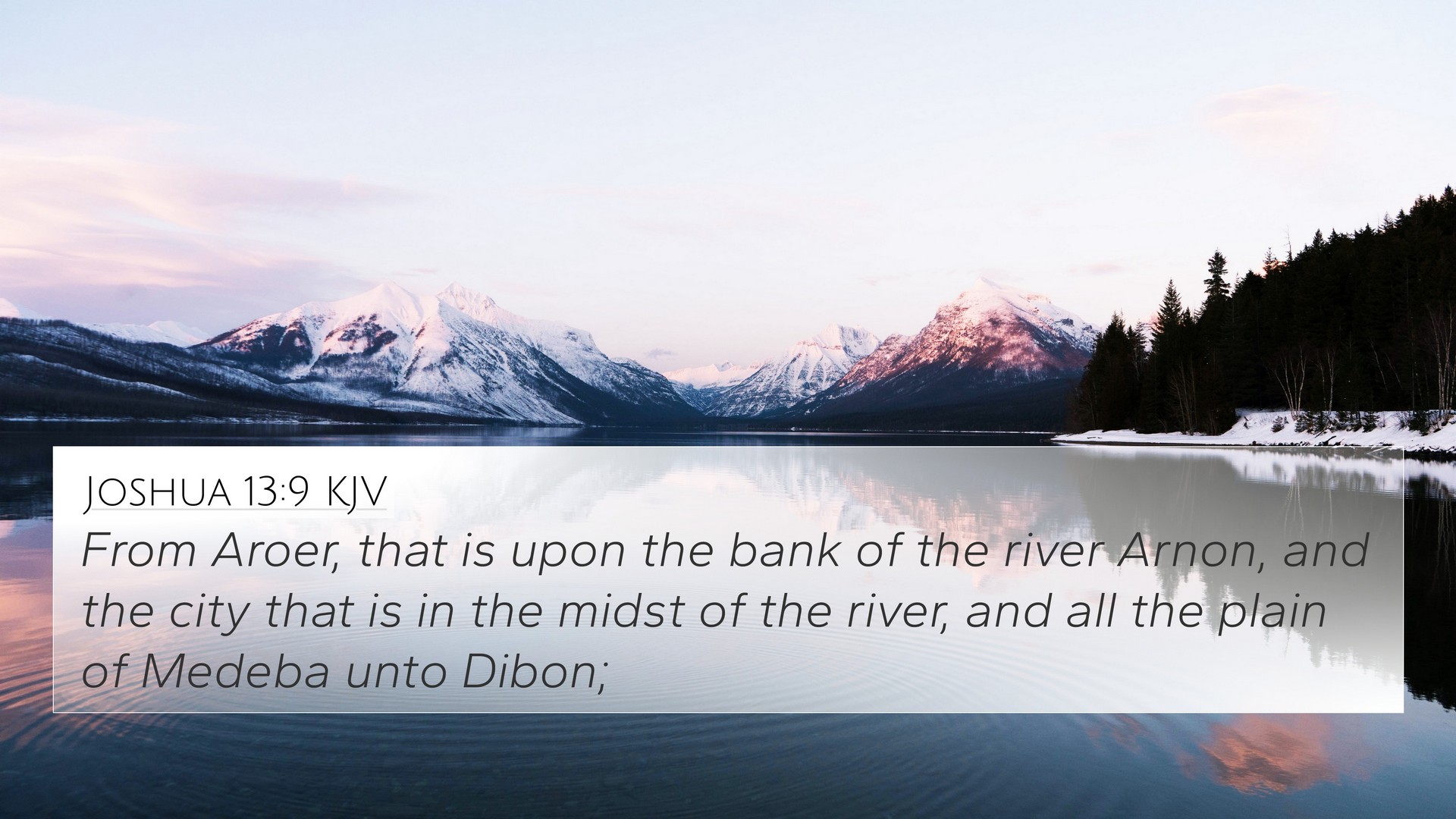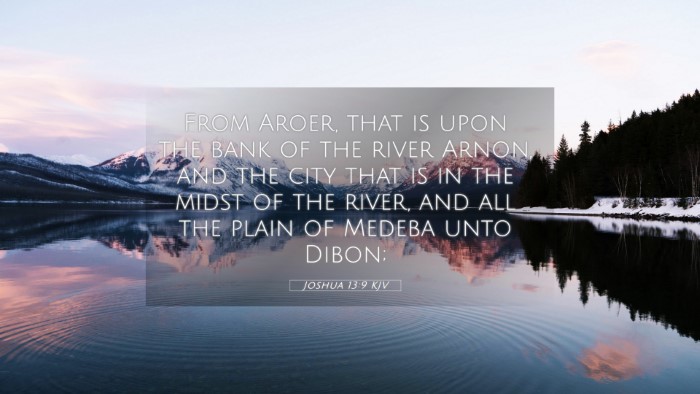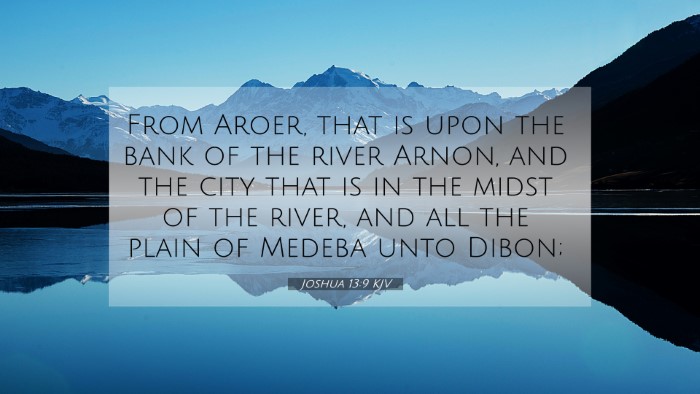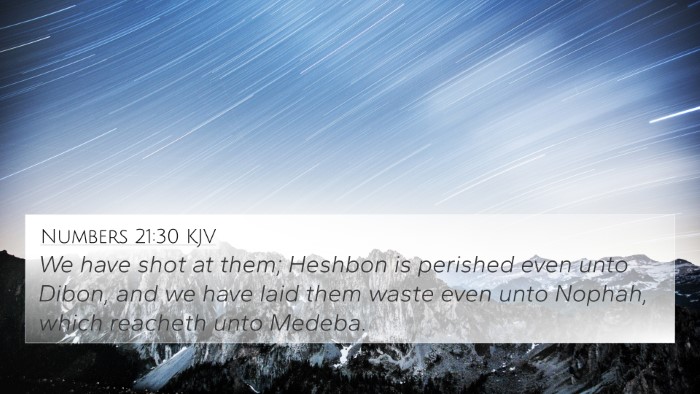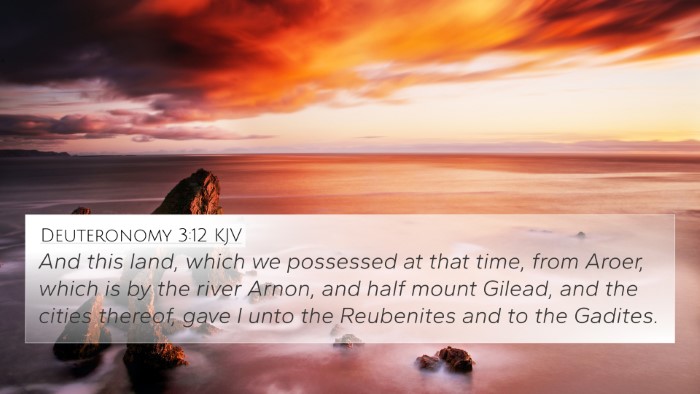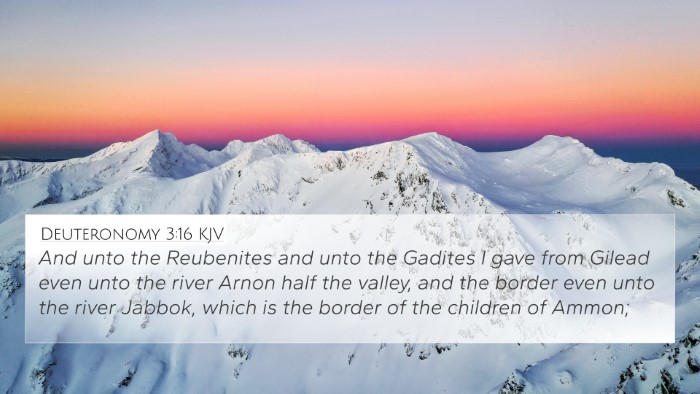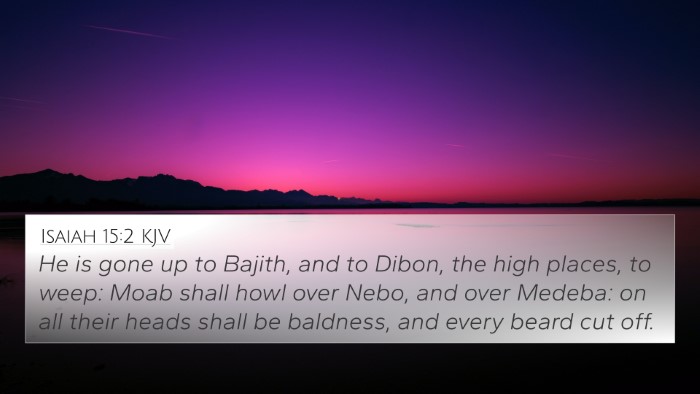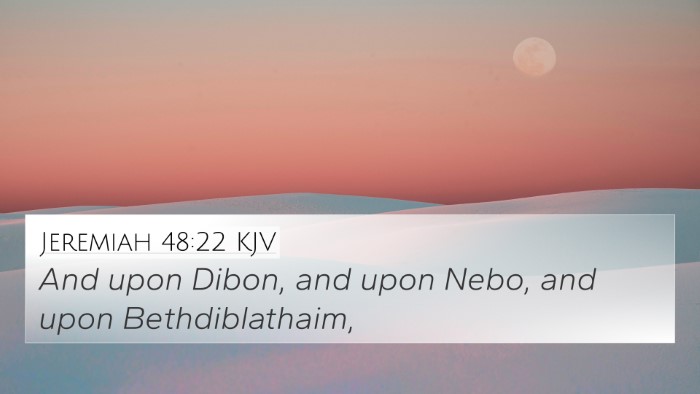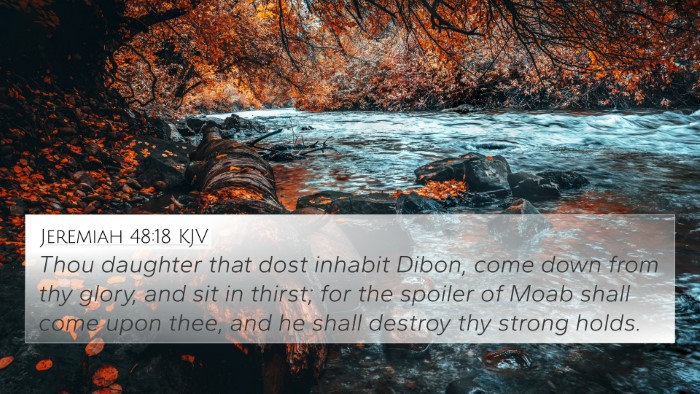Bible Verse Interpretation: Joshua 13:9
Verse Context: Joshua 13:9 states, "From Aroer, which is on the bank of the river Arnon, and the city that is in the midst of the river, and all the plain of Medeba, unto Dibon." This verse marks the delineation of territory belonging to the tribes of Israel during their conquest of Canaan.
Understanding Joshua 13:9
The verse can be understood through a few crucial insights from public domain commentaries:
- Significance of Territory: Matthew Henry elaborates on the importance of territorial boundaries in the context of the Israelite tribes. This delineation not only reflects God's promise but also establishes each tribe's inheritance, emphasizing God's faithfulness.
- Symbolism of the River Arnon: Albert Barnes points out that the mention of the river Arnon signifies a natural boundary that helps to define the geographical claim of the Israelites. This natural division illustrates God's guidance in the settling process.
- History of the Region: Adam Clarke comments on the historical significance of Medeba and Dibon, connecting these locations to previous events in Israelite history. Understanding this context enriches our comprehension of the text.
Cross-Referencing Biblical Texts
Joshua 13:9 serves as a vital point for cross-referencing various Biblical texts that reflect similar themes of land, promise, and fulfillment:
- Numbers 21:13: This verse provides background on the tribe's movements and settlements in relation to the river Arnon.
- Deuteronomy 2:24: The text speaks of the conquest of the land across the river, highlighting Israel's war efforts that eventually led to territorial acquisition.
- Joshua 12:2: A summary of conquered kings and regions, reinforcing God’s promise to Israel.
- Jeremiah 48:20: Reflects on the historical consequences faced by Moab, the nation bordering the Israelite territory, emphasizing the ongoing consequences of territorial claims.
- Micah 5:5: This verse subtly echoes the themes of inheritance and peace that arise from God’s promises to His people.
- Genesis 15:18: God’s covenant with Abraham about land inheritance is foundational for understanding the promises fulfilled in Joshua.
- Psalm 78:55: A reminder of the promised land and God's faithfulness to His covenant people.
Links Between the Prophets and Apostolic Teachings
This verse not only illustrates the fulfillment of God’s promise through land distribution but also serves as a metaphor for spiritual inheritance in Christian theology, tied back to the Apostolic teachings:
- The concept of inheritance is echoed in Ephesians 1:14, which speaks of the Holy Spirit being the guarantee of our inheritance until we acquire possession.
- In Hebrews 11:8-10, the faith of Abraham in God’s promises of land serves as a comparison to the faithfulness of Israel in settling their promised land.
- Revelation 21:1-4 speaks of the ultimate promised land for believers, establishing the parallel of earthly promises with the eternal hope of believers.
Thematic Bible Verse Connections
Engaging with thematic connections throughout Scripture enriches our understanding of this verse:
- The theme of God guiding His people parallels the experiences of the Israelites as seen in Isaiah 43:2, where God promises to be with His people through trials.
- Matthew 5:5 states, “Blessed are the meek, for they shall inherit the earth,” tying back to the theme of inheritance.
- Romans 4:13 discusses inheritance through faith, linking Old Testament promises to New Covenant theology.
Bible Study Tools for Cross-Referencing
To explore these connections in-depth, various tools and resources can assist students of the Scriptures:
- Bible concordance: Offers lists of words and phrases appearing in the Bible, enabling deeper study of linked verses.
- Bible cross-reference guide: Provides topical and related verse listings, suggesting relevant passages.
- Bible chain references: Arranges verses in a sequence, allowing an easy follow-through of concepts across scripture.
Conclusion
Joshua 13:9 serves as both a historical account and a theological insight into the faithfulness of God in fulfilling His promises. By utilizing comparative studies and thematic connections within Scripture, we can discern deeper meanings and applications of this verse. The act of cross-referencing is not merely an academic exercise but a spiritual endeavor that cultivates a richer relationship with the Word of God.
